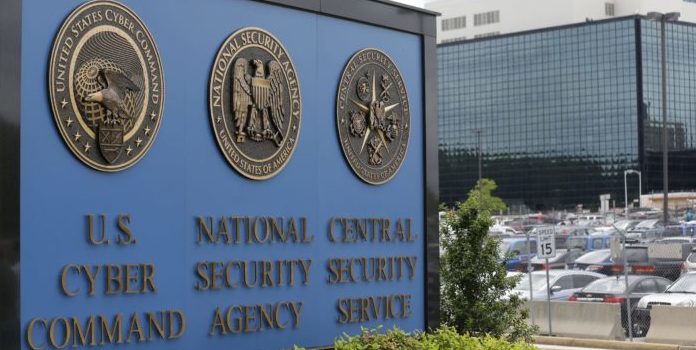(Ken Silva, Headline USA) During a Friday hearing of the U.S. Privacy and Civil Liberties Oversight Board, the director of the National Security Agency urged Congress to renew statutory authorities that allow them to engage in warrantless surveillance Americans’ communications.
The Friday hearing by PCLOB—a governmental agency designed to provide oversight of government’s anti-terrorism efforts—comes as Congress is set to debate whether to renew Section 702 of the Foreign Intelligence Surveillance Act, which authorizes the warrantless surveillance of electronic communications content stored by U.S. internet service providers. Unless Congress acts, Section 702 will expire at the end of the year.
Political pundits expect this year’s reauthorization debate to be the most contentious since Section 702 was enacted in 2008—due in large part to increasing skepticism of federal security agencies among Republicans.
Among leading Republicans who have expressed opposition to the spying authority is House Judiciary Committee Chair Jim Jordan, R-Ohio.
“We need to make changes to the FISA process. I think we should not even reauthorize FISA, which is going to come up in the next Congress,” Jordan reportedly told Sunday Morning Futures host Maria Bartiromo in November.
On Friday, NSA Director Gen. Paul Nakasone urged Congress to renew Section 702, arguing that it’s vital to America’s national security.
“We have learned about espionage plots to obtain sensitive U.S. technological information. We have used information from FISA Section 702 to prevent weapon components from reaching hostile foreign actors. We have identified threats to U.S. troops.,” Nakasone said.
“We have discovered sanctions of Asians and disrupted foreign cyberattacks. And intelligence acquired under this authority has stopped significant terrorist plots, saving American lives.”
Nakasone was light on specifics, telling the PCLOB that the NSA must be “limit what we share publicly because our foreign adversaries are paying close attention.”
The NSA director did cite two examples of where Section 702 was allegedly used to thwart terrorism from ISIS and Al-Qaeda, and another where it was used to thwart a cyberattack.
“In harkening back to the counterterrorism origins of the authority, FISA section 702 information contributed to a successful U.S. government operation against one of the last remaining 9/11 architects, Ayman al-Zawahiri,” he added, referring to the recent drone assassination of Al-Qaeda’s leader.
Civil liberties advocate Cindy Cohn, of the Electronic Frontier Foundation, also spoke at the PCLOB hearing, warning against the government overreach.
“I think we have to be honest at this point that the U.S. has de facto created a national security exception to the U.S. Constitution,” Cohn said.
Jeff Kosseth, a cybersecurity professor at the U.S. Naval Academy, also spoke against Section 702. He said he initially supported the legislative authority, but has reconsidered in light of recent FBI abuses.
“At a certain point, we must stop giving the nation’s largest law enforcement agency every benefit of the doubt. The FBI cannot play fast and loose with Americans’ most private information,” he said. “This has to stop now. And if the FBI cannot stop itself, the Congress has to step in.”
A report last year from the Office of the Director of National Intelligence revealed that the number of searches conducted by the FBI of Americans’ communications doubled from 2020 to 2021.
According to the report, the FBI used its Section 702 powers to collect the data of roughly 3.4 million U.S. people in 2021—up from 1.3 million a year before. The report only provides statistics for 2020 and 2021.
Senior Biden administration officials reportedly attributed the uptick in FBI searches to Russian cyberattacks throughout 2021.
Ken Silva is a staff writer at Headline USA. Follow him at twitter.com/jd_cashless.

